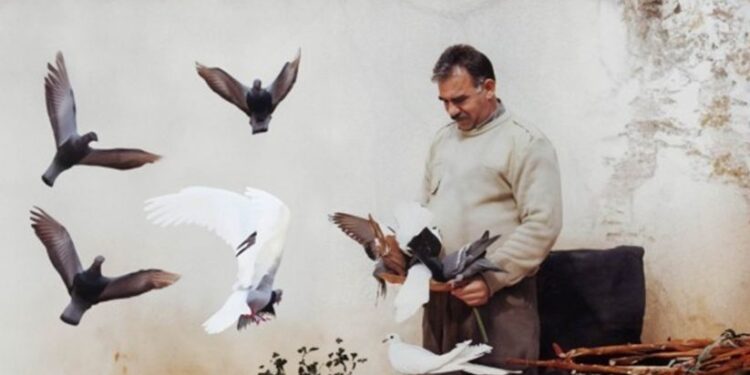The treatment of prisoners at İmrali Prison, where Kurdistan Workers’ Party (PKK) leader Abdullah Öcalan is held, has set a troubling standard for new high-security prisons across Turkey, according to lawyer Rengin Ergül. Speaking to JinNews’ Melek Avcı on 5 March, Ergül from the Association of Lawyers for Freedom (ÖHD) criticised the European anti-torture committee’s (CPT) failure to visit Imrali Island Prison, where Öcalan is held.
Ergül suggested that the committee’s dealings with Turkey should aim to pressure it into action instead of appeasing it, and that the committee should not conceal information from the public.
In the face of Turkey’s inaction, the CPT has also failed to find a solution or fulfil its function, according to lawyer Rengin Ergül. “In response to Turkey’s failure to act, we see that the CPT has not been able to produce a solution, nor has it fulfilled its role,” She noted. “They have released a list of prisons they visited concerning High-Security Prisons (YGC), and it turns out that almost all these newly opened prisons take Imrali Prison as a model,” she added, warning that the model of isolation practised at Imrali sets a concerning precedent for the treatment of prisoners in Turkey.
She also touched the limits of legal battle in a highly politicised international issue such as the imprisonment of Öcalan. “Public support must be vocal and widespread, from the parliament to the streets,” Ergül stressed, underlining the importance of public engagement in backing demands to make a state or mechanism take action, especially in the context of both Turkey and international arenas.
As the claims that the European Committee for the Prevention of Torture (CPT) did not visit Imrali Island due to Turkey’s obstructions continue, Ergül pointed out the CPT’s questionable legitimacy and existence following their failure to report on their last visit.
PKK leader Abdullah Öcalan has been held in isolation for 26 years on Imrali Prison Island, with no news from him or his fellow inmates for over 36 months. Efforts by lawyers from the Asrın Law Office to meet with Öcalan and other clients have been persistently denied, amidst a hunger strike by PKK and the Free Women’s Party of Kurdistan (PAJK) prisoners demanding freedom for Öcalan and a resolution to the Kurdish issue, now in its 106th day.
Ergül criticised the CPT’s inaction and secrecy in its dealings with Turkey, suggesting that the committee’s confidential negotiations should aim to pressure states into action, not conceal information from the public. The lawyer called for more transparent and independent assessments by international bodies, especially in cases of grave human rights violations like that on Imrali Island.
Addressing the broader implications of the struggle against isolation, Ergül argued for a concerted effort across all societal mechanisms. “If a member of your family was detained and you had no news for over 36 months, would there be anyone in Turkey who wouldn’t raise their voice?” she questioned, pushing for immediate action to end the isolation and highlighting the importance of public support in achieving substantial change.










